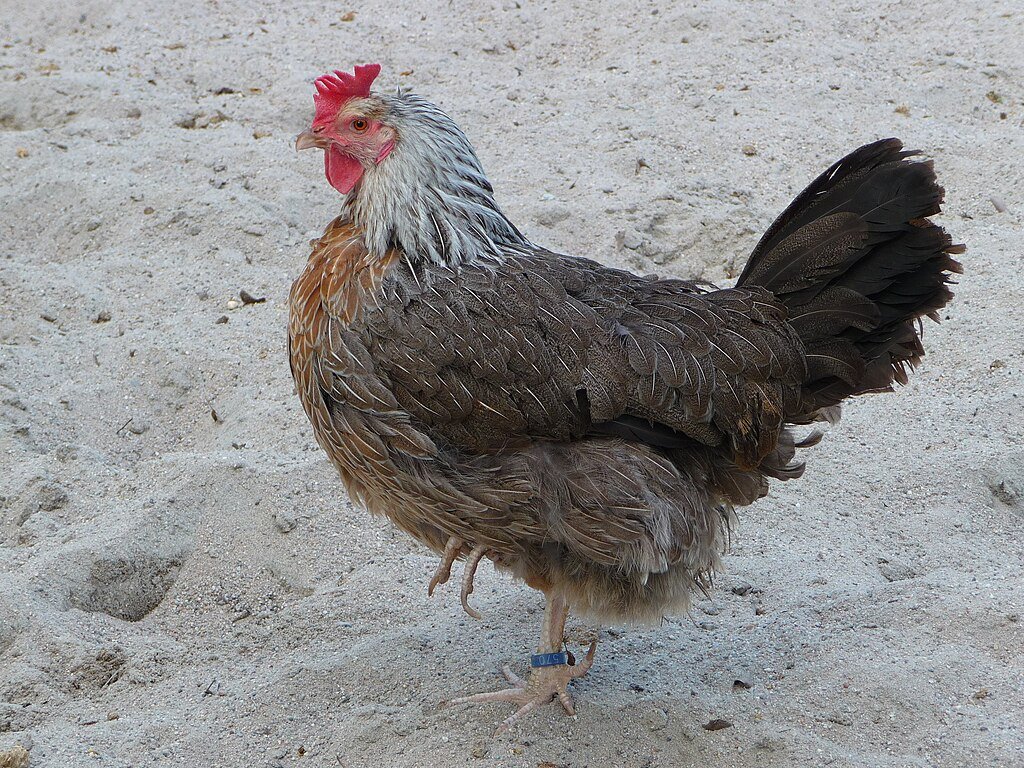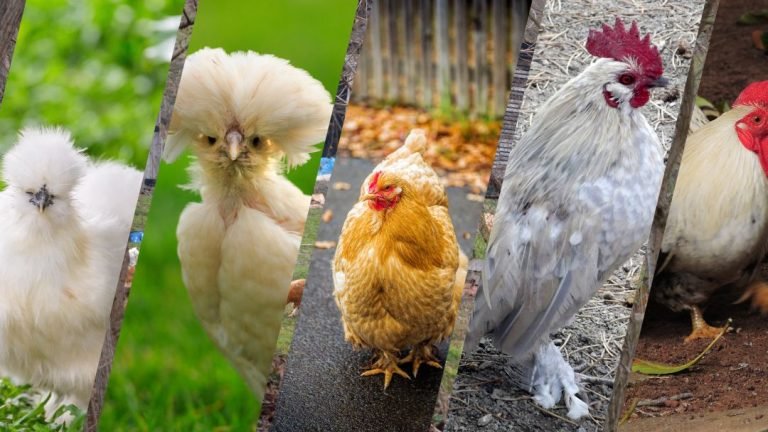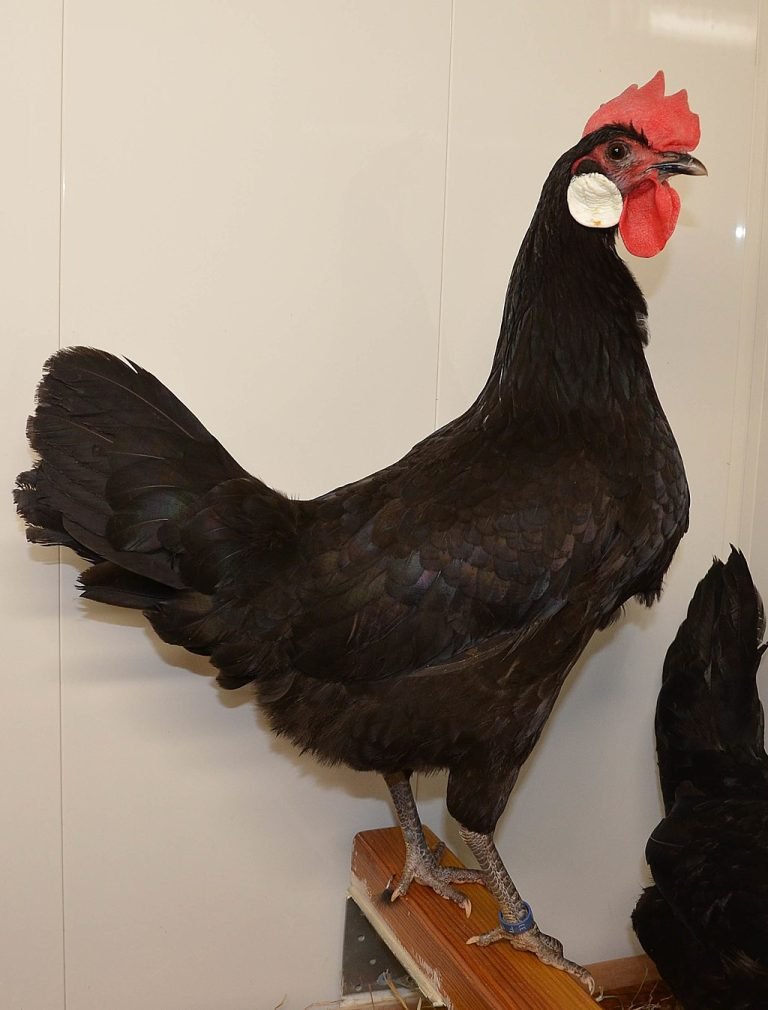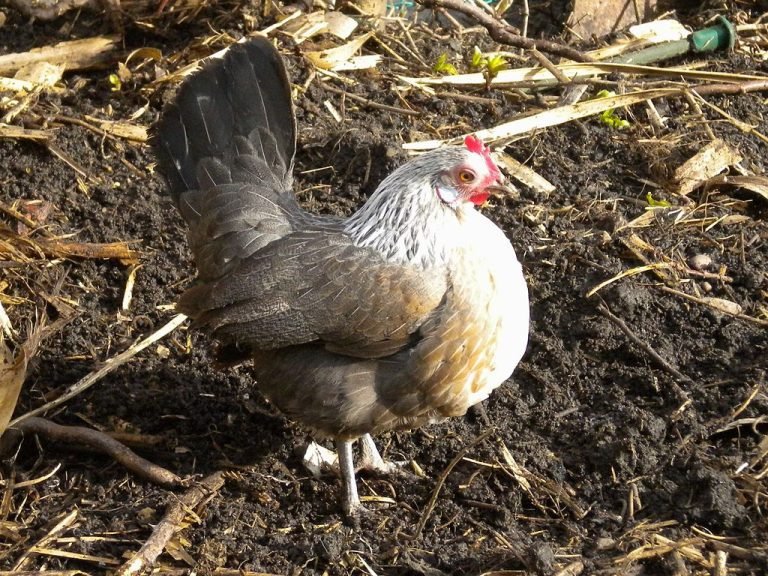The Dorking chicken breed is known for its distinctive appearance and excellent meat quality. It is a popular breed among poultry enthusiasts and is valued for its calm temperament.
Dating back to Roman times, the Dorking chicken breed is one of the oldest known breeds, and its history can be traced back to the British town of Dorking. It is renowned for its five-toed feet, which is a rare trait among chicken breeds.
With its deep, broad body and well-developed breasts, the Dorking chicken is highly regarded for its meat production, making it a favored choice for those looking to raise chickens for food. In addition to its utility characteristics, the Dorking chicken also showcases a docile and friendly personality, making it a delightful addition to any backyard flock. With its rich history and versatile attributes, the Dorking chicken breed continues to captivate poultry enthusiasts around the world.
History
The Dorking chicken breed is one with a rich and fascinating history. Originating from the town of Dorking in Surrey, England, this breed has been around for centuries and has gained popularity for its unique characteristics and contributions to the poultry world.
- Ancient origins: Dorking chickens are believed to have existed in Roman times, making them one of the oldest known chicken breeds. Their ancestors were thought to have been brought to Britain by the Romans, who valued them for their meat and eggs.
- Distinctive features: One of the key features distinguishing the Dorking breed from others is its five toes. Yes, you heard it right! Most chickens have four toes, but Dorkings have an extra toe, which gives them added stability and balance. They also have broad and robust body with a short neck and a large, well-rounded breast.
- Versatility: Dorkings gained popularity in the past for their exceptional meat quality. They have been highly regarded for their tender and flavorful meat, making them a preferred choice for meat production. However, they are not only prized for their meat but also valued for their ability to lay a respectable number of large brown eggs.
- Global recognition: This breed’s popularity is not limited to England alone. Dorkings have spread across the globe, gaining recognition in various countries for their unique qualities. They have even made their way to the United States, where they are bred and appreciated by poultry enthusiasts and small-scale farmers.
- Conservation efforts: Despite their long history, the Dorking breed faced a decline in numbers over the years. However, dedicated breeders and conservationists have been actively working to preserve and promote this cherished breed. Their efforts have helped raise awareness and ensure the continued existence of the Dorking chicken breed.
The rich history of the Dorking chicken breed, coupled with its distinctive features and versatility, makes it an intriguing choice for poultry enthusiasts and those interested in heritage breeds. Whether you’re captivated by its ancient origins, its unique toe count, or its exceptional meat quality, the Dorking breed certainly has an enduring presence in the poultry world.

General Characteristics
The Dorking chicken breed is known for its unique characteristics. With its broad body, short legs, and prominent red comb, it is a distinctive and visually appealing chicken. It also offers excellent meat quality and is a popular choice for backyard poultry enthusiasts.
The Dorking chicken breed is a fascinating and unique breed known for its distinctive appearance and desirable traits. This breed has a rich history and offers a range of characteristics that make it highly sought after by chicken enthusiasts. In this section, we will delve into the general characteristics of the Dorking chicken breed, providing you with valuable insights into what sets this breed apart from others.
Size And Appearance
- The Dorking chicken breed is medium to large in size, with males weighing an average of 9 to 10 pounds and females weighing around 7 to 8 pounds.
- These chickens have a compact and muscular body, giving them a robust appearance.
- They are renowned for their unique five-toed feet, which is a distinguishing feature not commonly found in other chicken breeds.
- The feathering of Dorking chickens is dense and lustrous, with various color variations available, including white, silver-gray, and dark varieties.
Egg Production
- Dorking chickens are moderate layers, producing around 150 to 200 medium to large-sized brown eggs per year.
- Their consistent egg production, combined with their friendly temperament, makes Dorking chickens popular choices for backyard flocks and small-scale egg production.
Meat Quality
- The Dorking breed is highly regarded for its exceptional meat quality, making it a favorite among poultry enthusiasts and chefs alike.
- Their fine-grained meat is succulent, tender, and flavorful, which results in a superior dining experience.
- Additionally, the Dorking chicken’s plump breast and well-developed thighs contribute to its desirability as a meat bird.
Broodiness
- Broodiness, or the tendency to incubate eggs and raise chicks, is a characteristic commonly observed in Dorking hens.
- This broody instinct makes Dorking chickens excellent natural mothers, ensuring the continuation of their lineage and allowing for sustainable breeding practices.
The Dorking chicken breed offers a combination of appealing characteristics, including its distinctive appearance, docile temperament, moderate egg production, superior meat quality, and broodiness. Whether you are looking to introduce a unique and attractive breed to your flock or seeking a dual-purpose breed for eggs and meat, the Dorking breed is sure to captivate both novices and experienced chicken enthusiasts.
Temperament
Dorking chickens are known for their calm and gentle temperament, making them a favored breed among chicken enthusiasts. Their friendly disposition and easygoing nature make them excellent additions to both small family farms and larger commercial operations. Here are some key points to understand about the temperament of Dorking chickens:
- Sociable: Dorkings are quite sociable birds that enjoy the company of both humans and other chickens. They are known for being peaceful and non-aggressive towards people and other animals.
- Docile: With their docile temperament, Dorkings are generally easy to handle and are known to be good with children. They are unlikely to exhibit aggressive behaviors, making them a suitable breed for families.
- Curious and Active: These chickens are known for their curious nature. They enjoy exploring their surroundings and are active foragers. Providing them with ample space to roam and engage in natural behaviors is important for their well-being.
- Tolerant of Confinement: While Dorkings thrive in free-range environments, they are also known to be tolerant of confinement. This makes them adaptable to various settings, including urban or suburban backyard setups.
- Well-Adapted: Dorkings have been around for centuries, and their calm temperament has remained consistent throughout the years. They have adapted well to different climates and are known for their hardiness and resilience.
Dorking chickens have an amiable and peaceful temperament, making them suitable companions for both beginners and experienced chicken keepers. Their calm and gentle nature, combined with their ability to adapt to various living conditions, contribute to their popularity as a sought-after breed.
Comb Types
The Dorking chicken breed is known for its unique comb types. These comb types not only play a role in the bird’s appearance but also serve important functions. Here are the different comb types found in Dorking chickens:
Single Comb
- The most common comb type for Dorking chickens is the single comb.
- It is a medium-sized comb that is evenly serrated with a straight, upright shape.
- The single comb is known for its versatility and adaptability to different climates.
Rose Comb
- Another comb type found in Dorking chickens is the rose comb.
- The rose comb is unique as it is smaller and more compact compared to the single comb.
- It has a low profile, with its comb and wattles sitting closely to the bird’s head.
- This comb type is particularly advantageous in cold climates, as it is less prone to frostbite.
Combless
- In rare cases, Dorking chickens may possess a combless trait.
- This means that they lack a comb altogether.
- Combless Dorkings have a smooth head without any protrusions.
- This comb variation is a result of genetic mutations but does not affect the bird’s overall health or productivity.
Buttercup Comb
- The buttercup comb is another variation that can be found in Dorking chickens.
- It is characterized by a cup-like shape with a distinct depression in the middle.
- The buttercup comb is relatively rare and is more commonly seen in other chicken breeds.
These comb types not only contribute to the unique appearance of the Dorking chicken breed but also serve practical purposes. Depending on the climate and individual preference, different comb types offer benefits such as better heat regulation or frostbite resistance.
Understanding the diverse comb types can help chicken enthusiasts appreciate the distinct characteristics of Dorking chickens.
Conclusion
Overall, the Dorking chicken breed is a remarkable choice for any chicken enthusiast. Its rich history, impressive size, and gentle temperament make it a standout among other breeds. The Dorking’s ability to adapt to various climates and its superior meat quality make it a versatile bird for both small-scale and commercial farmers.
Whether you choose to raise Dorkings for their eggs, their meat, or simply as unique and friendly pets, you won’t be disappointed. With their distinctive looks and docile nature, Dorkings are sure to turn heads and win over hearts in any backyard or farm.
So, if you’re searching for a chicken breed that combines heritage, utility, and a friendly disposition, look no further than the Dorking. Add a touch of history and charm to your flock with these fascinating birds. They are a true hidden gem of the chicken world.






